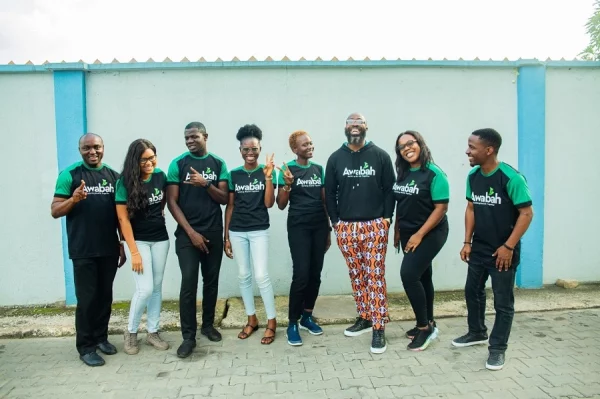Most Self-employed and informal workers in Nigeria cannot access the benefits that the formal financial system offers. This created the need to provide a solution that would drive financial inclusion among them on a very strong basis.
Several individuals have tried in their way to bridge the financial gap among different sectors of the economy. But Tunji Andrews embarked on a project with two others between November and December 2020, to help informal workers save for the future.
This project resulted in Awabah which was rolled out in January 2021. Awabah is a digital platform that provides micro pension services to self-employed and informal workers in Nigeria.
Read more about FinTech
Co-founded by Tunji Andrews, Tina Ajishebiyawo and Gboyega Olatundein 2020. It functions by understanding the peculiarities of its target niche market i.e workers in the informal economy. This market is usually difficult to enter since most of the workers there belong to different local cooperatives and market associations.
Onboarding Process
Awabah relied heavily on town hall meetings to reach this set of workers. Also, Awabah introduces its product to them via group presentations and one-on-one sessions to onboard them. After onboarding them, the company uses either its web platform or a network of local banking agents to continue collecting their contributions and educating them.
Service Offerings.
In the informal sector, income levels vary. Thus, the amounts contributed by users are based on an individual’s capacity. Also, the Contributions are flexible I.e contributions can be made daily, weekly, monthly, or even quarterly due to irregular cash flow in the sector. With as little as ₦500, workers can open a micro-pensions account.
Furthermore, Awabah operates a 60 / 40 percent quota system. For instance, if someone deposits ₦1000, ₦600 will be moved to the retirement account while the rest goes into the customer’s mobile wallet as contingent savings.
Sign up for the Connect Nigeria daily newsletter
Then, customers can withdraw 40% of their savings at any point. But this is after the initial 3 months of contributions. It makes money by earning commissions off every contribution
Extending pensions to the informal economy
Awabah’s core product is a micro pension aimed at building sustainable financial security for workers in the informal sector. In addition to this, it provides a contingent savings platform where people can save and withdraw their money. Generally, elderly parents in Nigeria think of their children as their retirement plan. As a result, they are financially dependent on their children in their old age.
This is partly because society deems it necessary for children to look after their ageing parents. Another reason for this is the lack of working systems for retirement savings. Even when they are available, they only cover people who are employed formally. The result is that informal workers become financially vulnerable as they get older. Thus, Awabah ensures that its users become financially independent even in old Age.
Growth and Traction
The startup raised $200,000 from early-stage angel investors ODBA and Co Ventures and Correlation Capital in July 2021. It was accepted into the Techstars London accelerator programme, where it got some funding. Also, Awabah partners with three Pension Fund Administrators, including Leadway Pensure, which holds the PenCom license under which it operates; a microfinance bank via which provides mobile wallets; as well as two agents banking networks.
Register to attend the Connect Nigeria Business Mixer
Going forward, the startup leverages the penetration of mobile phones in Nigeria to reach even a wider audience. It launched a USSD option through which existing and potential customers can learn about and sign up for Awabah, as well as get financial literacy lessons in their local languages. For those who have smartphones, Awabah engages them via WhatsApp.
In one year of operation, the company has launched operations in Lagos, Oyo, and Kwara states, registered over 12,000 people into the micro pension scheme with a 250 agent network. This year, Awabah is set to expand to more states in the country and launch its digital solution to meet its target of onboarding 150,000 customers in the next 12 months and 5 million in 5 years.
Awabah is two years old and still has a lot to do in terms of expansion. Perhaps there is a chance that most Informal workers in Africa face the same challenges. As a pioneer in this market, Awabah believes it is capable of conquering the market first in Nigeria, then the rest of Africa.
Featured Image Source: Nairametrics
Got a suggestion? Contact us: [email protected]


